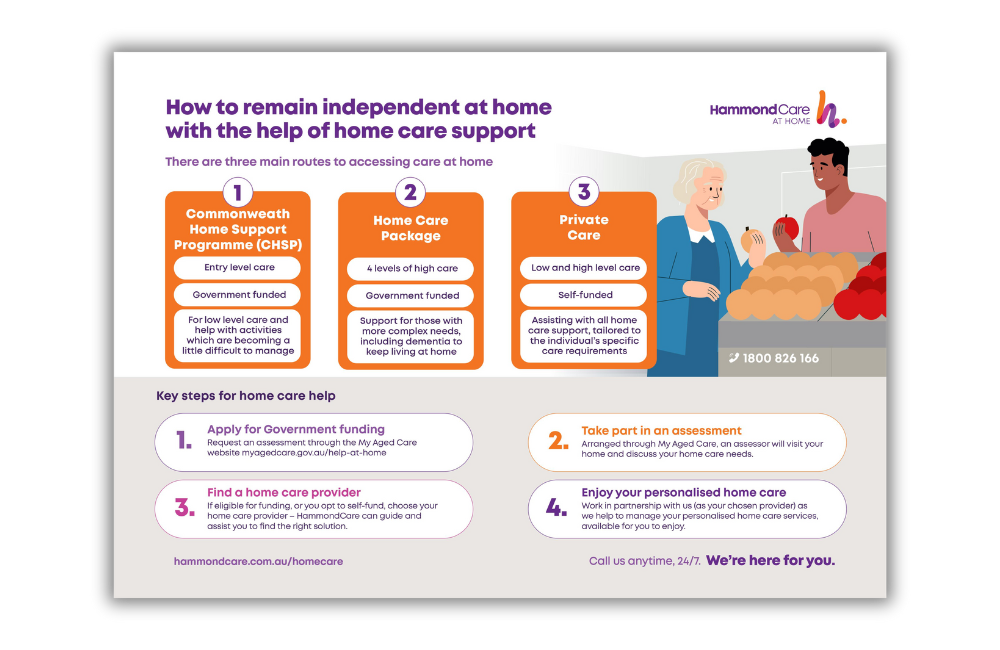All Regarding Home Care Services for People With Disabilities: NDIS Registered Assistance
Home care services under the NDIS play a pivotal duty in supporting people with disabilities. These services are created to improve day-to-day living through tailored support, varying from individual care to mobility assistance. Understanding exactly how to browse these alternatives can be intricate. This introduction discovers the different aspects of NDIS home treatment, from readily available solutions to the choice of service providers, highlighting necessary factors to consider for those seeking assistance. The journey towards equipped treatment starts here.
Comprehending the NDIS and Its Objective
The National Impairment Insurance Policy Scheme (NDIS) functions as a transformative structure designed to supply support and solutions for people with impairments. Established to improve the lifestyle and guarantee equitable access to crucial sources, the NDIS empowers individuals by offering customized strategies tailored to their one-of-a-kind requirements. It intends to foster independence, enabling people to seek their individual goals and aspirations.Through a structured technique, the NDIS allots financing for various assistances, including education, work help, and neighborhood participation. This all-encompassing system not only concentrates on instant care but also highlights lasting developmental end results. By promoting selection and control, the NDIS urges individuals to choose their recommended company, guaranteeing that care straightens with their worths and choices. Eventually, the NDIS represents a considerable commitment to improving the lives of individuals with specials needs, promoting inclusivity, and developing a much more helpful culture.
Sorts Of Home Treatment Services Available
Different types of home treatment services deal with people with impairments, largely concentrating on individual treatment help and break care choices. Individual care assistance supplies necessary support with day-to-day tasks, while reprieve care supplies momentary alleviation for primary caregivers. Recognizing these solutions is important for ensuring the health of both people with disabilities and their families.
Personal Treatment Support
While steering life can offer challenges for individuals with impairments, personal treatment aid offers essential support tailored to their unique requirements. This sort of home care solution encompasses a range of tasks developed to advertise freedom and enhance quality of life. Individual treatment assistants assist with everyday jobs such as bathing, clothing, brushing, and toileting, making certain individuals maintain personal hygiene and convenience. They might also assist with dish prep work, medicine monitoring, and movement support. By supplying personalized care, these specialists empower individuals to involve even more fully in their day-to-day routines and social tasks. Generally, individual care aid plays a substantial role in promoting self-respect and autonomy for those with disabilities, enabling them to thrive in their home atmosphere.

Respite Care Options
Respite care functions as a vital source for families and caretakers of individuals with handicaps, offering short-lived remedy for the needs of day-to-day caregiving. This type of solution can take various kinds, including in-home reprieve treatment, where trained professionals visit the home to help with treatment tasks. Families might decide for facility-based break treatment, where individuals obtain care in a specific atmosphere, allowing caretakers to take a break. In addition, some organizations use emergency situation break solutions for unpredicted circumstances. These alternatives not only assist minimize caretaker stress however also promote the health of people with handicaps by offering them brand-new experiences and social communication. On the whole, break treatment plays an essential function in sustaining both caregivers and those they look after.

How to Access NDIS Home Treatment Solutions
Accessing NDIS home treatment services includes recognizing the qualification criteria established forth by the National Handicap Insurance Coverage Scheme. People must browse a structured application process to safeguard the necessary support customized to their requirements. This area will clarify both the qualification requirements and the steps associated with applying for services.
Qualification Requirements Described
To qualify for NDIS home care services, people should fulfill particular eligibility standards that analyze their demands and scenarios. First, candidates have to be aged between 7 and 65 years and have a considerable and permanent handicap that affects their capacity to execute day-to-day activities. Furthermore, they need to be an Australian resident, an irreversible local, or hold a Protected Special Group Visa. The NDIS requires proof of the impairment, generally via medical analyses or reports. Furthermore, people must show that they need support to take part in financial and social life. These standards guarantee that services are routed in the direction of those who genuinely need help, advertising self-reliance and boosted lifestyle for people with specials needs.
Application Refine Steps
Can I Pick My Very Own Assistance Employees Through NDIS?
The private asked whether they could choose their own support employees under the NDIS framework. Normally, participants have the flexibility to choose support employees, cultivating individualized treatment that aligns with their particular requirements and preferences.
What Takes place if My Needs Adjustment After Getting Support?
They ought to communicate these modifications to their solution copyright if an individual's needs adjustment after obtaining support. Adjustments can be made to the treatment strategy, ensuring that the support stays relevant and effective for their circumstances.

Exist Restricts on The Number Of Hours of Treatment I Can Receive?
The specific made inquiries regarding prospective restrictions on the variety of treatment hours received. Usually, such limitations may exist based upon particular plans or moneying plans, highlighting the importance of examining contracts Go Here and guidelines frequently.
Can I Make Use Of NDIS Financing for Home Modifications?
The inquiry of using financing for home alterations occurs often. Typically, individuals might utilize NDIS financing for needed adjustments to their homes, making sure ease of access and safety and security, section upon conference specific qualification criteria and standards.
Just how Do I Deal with Complaints Concerning My Home Treatment Solutions?
To attend to complaints concerning home care services, individuals should first document their issues. They can connect directly with their service copyright, seeking resolution, or escalate the problem to pertinent oversight bodies if essential. Home care solutions under the NDIS play an essential function in supporting individuals with disabilities. Numerous types of home treatment services cater to people with impairments, largely focusing on personal treatment help and break care choices. home care package providers. Personal care assistance offers important support with everyday tasks, while reprieve care uses temporary alleviation for primary caretakers. Family members may opt for facility-based break care, where individuals get treatment in a customized setting, permitting caretakers to take a break. Exactly how can family members efficiently handle the financial facets of home treatment services for people with specials needs?